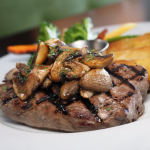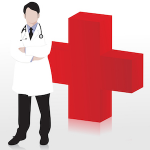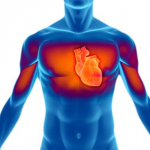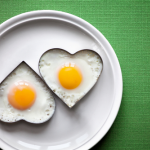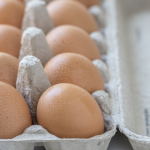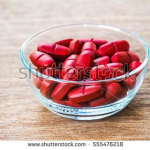To reduce your risk of a cardiovascular “event,” your doctor will always recommend maintaining a healthy diet and exercise. But how much does a healthy diet actually contribute to risk reduction; is it worth giving up all the “bad” foods that taste so good? A new study tries to find an answer.
cholesterol
In the 60-and-older category, 50 percent of men and 38 percent of women are on cholesterol-lowering drugs. Is that really necessary?
The FDA used Tipping Point Analysis to show that an important study of cholesterol-lowering medications is incorrect. So who got it wrong? The FDA or the New England Journal of Medicine, which peer-reviewed the work?
There's good and bad cholesterol. And if we want to avoid certain types of heart and circulatory problems, we want to lower the bad, LDL and raise the good. But how high is enough? And is it possible to get the good, HDL too high? If the results of a recent study are confirmed, yes, having HDL that's too high won't help your heart.
Not only are eggs not the villainous promoters of heart disease they've been cracked up to be, they may actually help promote heart health. An investigation into the subtypes of LDL and HDL cholesterol found that eating as many as 3 eggs per day can have a positive influence — at least in younger, healthy people.
This egg update isn't about the usual "there's too much cholesterol" or "only eat the white parts" topics (neither of which have any basis in science, by the way). It's about a terrifically lame website lacking factual fitness that ranks ways to prepare an egg from most healthy to most dangerous. Not only is this silly – it's dead wrong.
A recent study on how olive oil affects HDL and LDL (good and bad cholesterol in your body) has us wondering.. Is all cholesterol created equal?
If you have high cholesterol, you may be taking some medications called statins, which are the most effective medicines for lowering "bad" cholesterol. But some people are turning to over-the-counter alternatives like red yeast rice, a nutritional supplement with cholesterol-lowering action. However, they come with safety concerns.
Questions were raised about Hillary Clinton's health after a recent public dizzying episode. Her doctor released a "summary update" on the presidential candidate's health, "since the release of [her] previous medical statement in July 2015." What does this letter mean? Not everything and not nothing.
While statin drugs, which lower cholesterol production by the liver, have helped many avoid atherosclerosis not everyone can take them. A new means of dealing with artery-blocking cholesterol plaques may be on the horizon — with an old compound called cyclodextrin possibly being repurposed to do just that.
Dietary cholesterol, especially eggs, have often been demonized as a source of high blood cholesterol levels, and thus taboo for people with an elevated risk of heart disease. But a recent study once again gives dietary cholesterol, and eggs, a clean bill of health.
The new Dietary Guidelines for Americans have just been published, and there are some positive moves as well as some of the same-old recommendations that have yet to be shown to be effective. Dietary advice always brings a variety of dissent and assents, so we thought we'd add some of our own.
